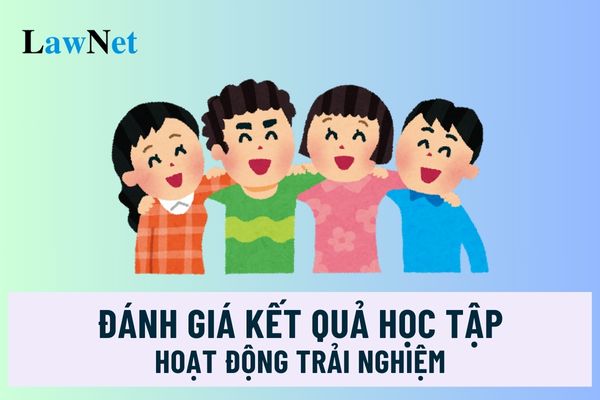Vietnam: Who is primarily responsible for assessing the experiential learning results of primary school students?
Are Experiential Activities Compulsory for primary school students in Vietnam?
Under Section 1 of the General Education Program on Experiential Activities issued in conjunction with Circular 32/2018/TT-BGDDT:
I. Characteristics of Experiential and Career Orientation Activities
Experiential activities (in primary education) and Career Orientation Activities (in secondary and high school education) are compulsory educational activities implemented from grade 1 to grade 12.
Experiential and Career Orientation Activities are educational activities guided, designed, and instructed by educators, providing opportunities for students to engage with reality, experience positive emotions, utilize existing experiences, and integrate knowledge and skills from various subjects to perform assigned tasks or solve practical problems from school life, family, and society appropriate to their age; through which, transform past experiences into new knowledge, understanding, and skills contributing to developing creative potential and adaptability to life, environment, and future career.
Experiential and Career Orientation Activities contribute to the formation and development of essential qualities, general competencies, and specific skills for students; the content of activities is built based on students' relationships with themselves, society, nature, and careers.
The content of Experiential and Career Orientation Activities is divided into two phases: the basic education phase and the career-oriented education phase.
...
Therefore, experiential activities are compulsory for primary school students in Vietnam.
>> See the General Education Program on Experiential Activities issued in conjunction with Circular 32/2018/TT-BGDDT: Download

Who is primarily responsible for assessing the experiential learning results of primary school students in Vietnam? (Image from the Internet)
Who is primarily responsible for assessing the experiential learning results of primary school students in Vietnam?
Under sub-item 1.5 Item 1 Official Dispatch 3535/BGDDT-GDTH in 2019 on assessing the experiential learning results of students as follows:
1. Experiential activities for primary education in the General Education Program 2018 are implemented starting from the 2020 - 2021 academic year
...
1.5. Assessing the experiential learning results of students
- Assessment is carried out in accordance with the regulations of the General Education Program issued according to Circular No. 32/2018/TT-BGDDT dated December 26, 2018, and Circular No. 30/2014/TT-BGDDT dated August 28, 2014 of the Minister of Education and Training issuing regulations on assessing primary school students; Circular No. 22/2016/TT-BGDDT dated September 22, 2016, of the Minister of Education and Training amending and supplementing a number of provisions of the regulations on assessing primary school students issued together with Circular No. 30/2014/TT-BGDDT dated August 28, 2014, of the Minister of Education and Training.
- The homeroom teacher is the one who presides over and is primarily responsible for assessing the experiential learning results of each student.
Therefore, the person primarily responsible for assessing the experiential learning results of primary school students is the homeroom teacher.
What are the requirements for assessing the experiential learning results in Vietnam?
Under Section 7 of the General Education Program on Experiential Activities issued in conjunction with Circular 32/2018/TT-BGDDT, the assessment of experiential learning results must meet 05 groups of requirements:
(1) The purpose of assessment is to collect accurate, timely, and valuable information about the level of requirement achievement compared to the program; the progress of students during and after the experiential phases. assessment results provide a basis for orienting students to continue to perfect themselves and are also an important basis for educational institutions, managers, and teachers to adjust the program and school activities.
(2) The assessment content includes the expressions of qualities and abilities identified in the program: life adaptability, activity design and organization ability, career orientation ability. The requirements for the development of personal qualities and abilities are mainly assessed through themed activities, Career Orientation Activities, participation in collective activities, and students' products in each activity.
For Under-Flag and Class Activities, the assessment primarily focuses on students' contributions to collective activities, the number of hours participated in activities, and the results achieved in collective activities.
Additionally, factors such as motivation, spirit, attitude, responsibility, and positivity towards common activities are also frequently assessed during participation.
(3) Combining teacher assessment with self-assessment and peer assessment of students, parent assessment, and community assessment; the homeroom teacher is responsible for summarizing the assessment results.
(4) assessment data is based on information collected from teacher observations, student self-assessment, peer assessment within the class, parent and community feedback; information about the number of hours (times) participating in experiential activities (collective activities, regular experiential activities, social and community service activities, Career Orientation Activities, labor activities, etc.); the quantity and quality of completed products stored in the activity record.
(5) The assessment results for each student are a synthesis of continuous and periodic assessments of qualities and abilities and can be classified into several levels for grading.
Experiential and Career Orientation Activities assessment results are recorded in the student’s academic record (equivalent to a subject).

